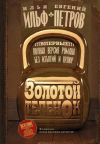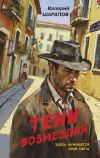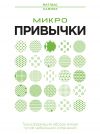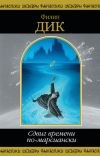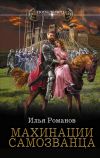Текст книги "The Great God Pan / Великий бог Пан"
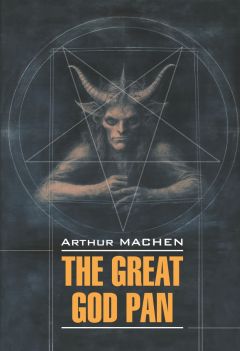
Автор книги: Артур Мейчен
Жанр: Иностранные языки, Наука и Образование
сообщить о неприемлемом содержимом
Текущая страница: 5 (всего у книги 17 страниц) [доступный отрывок для чтения: 6 страниц]
The White People
Prologue
'Sorcery and sanctity,' said Ambrose, 'these are the only realities. Each is an ecstasy, a withdrawal from the common life.'
Cotgrave listened, interested. He had been brought by a friend to this mouldering house in a northern suburb, through an old garden to the room where Ambrose the recluse dozed and dreamed over his books.
'Yes,' he went on, 'magic is justified of her children. There are many, I think, who eat dry crusts and drink water, with a joy infinitely sharper than anything within the experience of the 'practical' epicure.'
'You are speaking of the saints?'
'Yes, and of the sinners, too. I think you are falling into the very general error of confining the spiritual world to the supremely good; but the supremely wicked, necessarily, have their portion in it. The merely carnal, sensual man can no more be a great sinner than he can be a great saint. Most of us are just indifferent, mixed-up creatures; we muddle through the world without realizing the meaning and the inner sense of things, and, consequently, our wickedness and our goodness are alike second-rate, unimportant.'
'And you think the great sinner, then, will be an ascetic, as well as the great saint?'
'Great people of all kinds forsake the imperfect copies and go to the perfect originals. I have no doubt but that many of the very highest among the saints have never done a 'good action' (using the words in their ordinary sense). And, on the other hand, there have been those who have sounded the very depths of sin, who all their lives have never done an 'ill deed.''
He went out of the room for a moment, and Cotgrave, in high delight, turned to his friend and thanked him for the introduction.
'He's grand,' he said. 'I never saw that kind of lunatic before.'
Ambrose returned with more whisky and helped the two men in a liberal manner. He abused the teetotal sect with ferocity, as he handed the seltzer, and pouring out a glass of water for himself, was about to resume his monologue, when Cotgrave broke in-
'I can't stand it, you know,' he said, 'your paradoxes are too monstrous. A man may be a great sinner and yet never do anything sinful! Come!'
'You're quite wrong,' said Ambrose. 'I never make paradoxes; I wish I could. I merely said that a man may have an exquisite taste in Romanée Conti, and yet never have even smelt four ale. That's all, and it's more like a truism than a paradox, isn't it? Your surprise at my remark is due to the fact that you haven't realized what sin is. Oh, yes, there is a sort of connexion between Sin with the capital letter, and actions which are commonly called sinful: with murder, theft, adultery, and so forth. Much the same connexion that there is between the A, B, C and fine literature. But I believe that the misconception-it is all but universal-arises in great measure from our looking at the matter through social spectacles. We think that a man who does evil to us and to his neighbours must be very evil. So he is, from a social standpoint; but can't you realize that Evil in its essence is a lonely thing, a passion of the solitary, individual soul? Really, the average murderer, quâ murderer, is not by any means a sinner in the true sense of the word. He is simply a wild beast that we have to get rid of to save our own necks from his knife. I should class him rather with tigers than with sinners.'
'It seems a little strange.'
'I think not. The murderer murders not from positive qualities, but from negative ones; he lacks something which non-murderers possess. Evil, of course, is wholly positive-only it is on the wrong side. You may believe me that sin in its proper sense is very rare; it is probable that there have been far fewer sinners than saints. Yes, your standpoint is all very well for practical, social purposes; we are naturally inclined to think that a person who is very disagreeable to us must be a very great sinner! It is very disagreeable to have one's pocket picked, and we pronounce the thief to be a very great sinner. In truth, he is merely an undeveloped man. He cannot be a saint, of course; but he may be, and often is, an infinitely better creature than thousands who have never broken a single commandment. He is a great nuisance to us, I admit, and we very properly lock him up if we catch him; but between his troublesome and unsocial action and evil-oh, the connexion is of the weakest.'
It was getting very late. The man who had brought Cotgrave had probably heard all this before, since he assisted with a bland and judicious smile, but Cotgrave began to think that his 'lunatic' was turning into a sage.
'Do you know,' he said, 'you interest me immensely? You think, then, that we do not understand the real nature of evil?'
'No, I don't think we do. We over-estimate it and we under-estimate it. We take the very numerous infractions of our social 'bye-laws'-the very necessary and very proper regulations which keep the human company together-and we get frightened at the prevalence of 'sin' and 'evil.' But this is really nonsense. Take theft, for example. Have you any horror at the thought of Robin Hood, of the Highland caterans of the seventeenth century, of the moss-troopers, of the company promoters of our day?
'Then, on the other hand, we underrate evil. We attach such an enormous importance to the 'sin' of meddling with our pockets (and our wives) that we have quite forgotten the awfulness of real sin.'
'And what is sin?' said Cotgrave.
'I think I must reply to your question by another. What would your feelings be, seriously, if your cat or your dog began to talk to you, and to dispute with you in human accents? You would be overwhelmed with horror. I am sure of it. And if the roses in your garden sang a weird song, you would go mad. And suppose the stones in the road began to swell and grow before your eyes, and if the pebble that you noticed at night had shot out stony blossoms in the morning?
'Well, these examples may give you some notion of what sin really is.'
'Look here,' said the third man, hitherto placid, 'you two seem pretty well wound up. But I'm going home. I've missed my tram, and I shall have to walk.'
Ambrose and Cotgrave seemed to settle down more profoundly when the other had gone out into the early misty morning and the pale light of the lamps.
'You astonish me,' said Cotgrave. 'I had never thought of that. If that is really so, one must turn everything upside down. Then the essence of sin really is-'
'In the taking of heaven by storm, it seems to me,' said Ambrose. 'It appears to me that it is simply an attempt to penetrate into another and higher sphere in a forbidden manner. You can understand why it is so rare. There are few, indeed, who wish to penetrate into other spheres, higher or lower, in ways allowed or forbidden. Men, in the mass, are amply content with life as they find it. Therefore there are few saints, and sinners (in the proper sense) are fewer still, and men of genius, who partake sometimes of each character, are rare also. Yes; on the whole, it is, perhaps, harder to be a great sinner than a great saint.'
'There is something profoundly unnatural about Sin? Is that what you mean?'
'Exactly. Holiness requires as great, or almost as great, an effort; but holiness works on lines that were natural once; it is an effort to recover the ecstasy that was before the Fall. But sin is an effort to gain the ecstasy and the knowledge that pertain alone to angels and in making this effort man becomes a demon. I told you that the mere murderer is not therefore a sinner; that is true, but the sinner is sometimes a murderer. Gilles de Raiz is an instance. So you see that while the good and the evil are unnatural to man as he now is-to man the social, civilized being-evil is unnatural in a much deeper sense than good. The saint endeavours to recover a gift which he has lost; the sinner tries to obtain something which was never his. In brief, he repeats the Fall.'
'But are you a Catholic?' said Cotgrave.
'Yes; I am a member of the persecuted Anglican Church.'
'Then, how about those texts which seem to reckon as sin that which you would set down as a mere trivial dereliction?'
'Yes; but in one place the word 'sorcerers' comes in the same sentence, doesn't it? That seems to me to give the key-note. Consider: can you imagine for a moment that a false statement which saves an innocent man's life is a sin? No; very good, then, it is not the mere liar who is excluded by those words; it is, above all, the 'sorcerers' who use the material life, who use the failings incidental to material life as instruments to obtain their infinitely wicked ends. And let me tell you this: our higher senses are so blunted, we are so drenched with materialism, that we should probably fail to recognize real wickedness if we encountered it.'
'But shouldn't we experience a certain horror-a terror such as you hinted we would experience if a rose tree sang-in the mere presence of an evil man?'
'We should if we were natural: children and women feel this horror you speak of, even animals experience it. But with most of us convention and civilization and education have blinded and deafened and obscured the natural reason. No, sometimes we may recognize evil by its hatred of the good-one doesn't need much penetration to guess at the influence which dictated, quite unconsciously, the 'Blackwood' review of Keats-but this is purely incidental; and, as a rule, I suspect that the Hierarchs of Tophet pass quite unnoticed, or, perhaps, in certain cases, as good but mistaken men.'
'But you used the word 'unconscious' just now, of Keats' reviewers. Is wickedness ever unconscious?'
'Always. It must be so. It is like holiness and genius in this as in other points; it is a certain rapture or ecstasy of the soul; a transcendent effort to surpass the ordinary bounds. So, surpassing these, it surpasses also the understanding, the faculty that takes note of that which comes before it. No, a man may be infinitely and horribly wicked and never suspect it. But I tell you, evil in this, its certain and true sense, is rare, and I think it is growing rarer.'
'I am trying to get hold of it all,' said Cotgrave. From what you say, I gather that the true evil differs generically from that which we call evil?'
'Quite so. There is, no doubt, an analogy between the two; a resemblance such as enables us to use, quite legitimately, such terms as the 'foot of the mountain' and the 'leg of the table.' And, sometimes, of course, the two speak, as it were, in the same language. The rough miner, or 'puddler,' the untrained, undeveloped 'tiger-man,' heated by a quart or two above his usual measure, comes home and kicks his irritating and injudicious wife to death. He is a murderer. And Gilles de Raiz was a murderer. But you see the gulf that separates the two? The 'word,' if I may so speak, is accidentally the same in each case, but the 'meaning' is utterly different. It is flagrant 'Hobson Jobson' to confuse the two, or rather, it is as if one supposed that Juggernaut and the Argonauts had something to do etymologically with one another. And no doubt the same weak likeness, or analogy, runs between all the 'social' sins and the real spiritual sins, and in some cases, perhaps, the lesser may be 'schoolmasters' to lead one on to the greater-from the shadow to the reality. If you are anything of a Theologian, you will see the importance of all this.'
'I am sorry to say,' remarked Cotgrave, 'that I have devoted very little of my time to theology. Indeed, I have often wondered on what grounds theologians have claimed the title of Science of Sciences for their favourite study; since the 'theological' books I have looked into have always seemed to me to be concerned with feeble and obvious pieties, or with the kings of Israel and Judah. I do not care to hear about those kings.'
Ambrose grinned.
'We must try to avoid theological discussion,' he said. 'I perceive that you would be a bitter disputant. But perhaps the 'dates of the kings' have as much to do with theology as the hobnails of the murderous puddler with evil.'
'Then, to return to our main subject, you think that sin is an esoteric, occult thing?'
'Yes. It is the infernal miracle as holiness is the supernal. Now and then it is raised to such a pitch that we entirely fail to suspect its existence; it is like the note of the great pedal pipes of the organ, which is so deep that we cannot hear it. In other cases it may lead to the lunatic asylum, or to still stranger issues. But you must never confuse it with mere social misdoing. Remember how the Apostle, speaking of the 'other side,' distinguishes between 'charitable' actions and charity. And as one may give all one's goods to the poor, and yet lack charity; so, remember, one may avoid every crime and yet be a sinner.'
'Your psychology is very strange to me,' said Cotgrave, 'but I confess I like it, and I suppose that one might fairly deduce from your premisses the conclusion that the real sinner might very possibly strike the observer as a harmless personage enough?'
'Certainly, because the true evil has nothing to do with social life or social laws, or if it has, only incidentally and accidentally. It is a lonely passion of the soul-or a passion of the lonely soul-whichever you like. If, by chance, we understand it, and grasp its full significance, then, indeed, it will fill us with horror and with awe. But this emotion is widely distinguished from the fear and the disgust with which we regard the ordinary criminal, since this latter is largely or entirely founded on the regard which we have for our own skins or purses. We hate a murder, because we know that we should hate to be murdered, or to have any one that we like murdered. So, on the 'other side,' we venerate the saints, but we don't 'like' them as well as our friends. Can you persuade yourself that you would have 'enjoyed' St. Paul's company? Do you think that you and I would have 'got on' with Sir Galahad?
'So with the sinners, as with the saints. If you met a very evil man, and recognized his evil; he would, no doubt, fill you with horror and awe; but there is no reason why you should 'dislike' him. On the contrary, it is quite possible that if you could succeed in putting the sin out of your mind you might find the sinner capital company, and in a little while you might have to reason yourself back into horror. Still, how awful it is. If the roses and the lilies suddenly sang on this coming morning; if the furniture began to move in procession, as in De Maupassant's tale!'
'I am glad you have come back to that comparison,' said Cotgrave, 'because I wanted to ask you what it is that corresponds in humanity to these imaginary feats of inanimate things. In a word-what is sin? You have given me, I know, an abstract definition, but I should like a concrete example.'
'I told you it was very rare,' said Ambrose, who appeared willing to avoid the giving of a direct answer. 'The materialism of the age, which has done a good deal to suppress sanctity, has done perhaps more to suppress evil. We find the earth so very comfortable that we have no inclination either for ascents or descents. It would seem as if the scholar who decided to 'specialize' in Tophet, would be reduced to purely antiquarian researches. No palaeontologist could show you a live pterodactyl.'
'And yet you, I think, have 'specialized,' and I believe that your researches have descended to our modern times.'
'You are really interested, I see. Well, I confess, that I have dabbled a little, and if you like I can show you something that bears on the very curious subject we have been discussing.'
Ambrose took a candle and went away to a far, dim corner of the room. Cotgrave saw him open a venerable bureau that stood there, and from some secret recess he drew out a parcel, and came back to the window where they had been sitting.
Ambrose undid a wrapping of paper, and produced a green pocket-book.
'You will take care of it?' he said. 'Don't leave it lying about. It is one of the choicer pieces in my collection, and I should be very sorry if it were lost.'
He fondled the faded binding.
'I knew the girl who wrote this,' he said. 'When you read it, you will see how it illustrates the talk we have had tonight. There is a sequel, too, but I won't talk of that.
'There was an odd article in one of the reviews some months ago,' he began again, with the air of a man who changes the subject. 'It was written by a doctor-Dr. Coryn, I think, was the name. He says that a lady, watching her little girl playing at the drawing-room window, suddenly saw the heavy sash give way and fall on the child's fingers. The lady fainted, I think, but at any rate the doctor was summoned, and when he had dressed the child's wounded and maimed fingers he was summoned to the mother. She was groaning with pain, and it was found that three fingers of her hand, corresponding with those that had been injured on the child's hand, were swollen and inflamed, and later, in the doctor's language, purulent sloughing set in.'
Ambrose still handled delicately the green volume.
'Well, here it is,' he said at last, parting with difficulty, it seemed, from his treasure.
'You will bring it back as soon as you have read it,' he said, as they went out into the hall, into the old garden, faint with the odour of white lilies.
There was a broad red band in the east as Cotgrave turned to go, and from the high ground where he stood he saw that awful spectacle of London in a dream.
The Green Book
The morocco binding of the book was faded, and the colour had grown faint, but there were no stains nor bruises nor marks of usage. The book looked as if it had been bought 'on a visit to London' some seventy or eighty years ago, and had somehow been forgotten and suffered to lie away out of sight. There was an old, delicate, lingering odour about it, such an odour as sometimes haunts an ancient piece of furniture for a century or more. The end-papers, inside the binding, were oddly decorated with coloured patterns and faded gold. It looked small, but the paper was fine, and there were many leaves, closely covered with minute, painfully formed characters.
I found this book (the manuscript began) in a drawer in the old bureau that stands on the landing. It was a very rainy day and I could not go out, so in the afternoon I got a candle and rummaged in the bureau. Nearly all the drawers were full of old dresses, but one of the small ones looked empty, and I found this book hidden right at the back. I wanted a book like this, so I took it to write in. It is full of secrets. I have a great many other books of secrets I have written, hidden in a safe place, and I am going to write here many of the old secrets and some new ones; but there are some I shall not put down at all. I must not write down the real names of the days and months which I found out a year ago, nor the way to make the Aklo letters, or the Chian language, or the great beautiful Circles, nor the Mao Games, nor the chief songs. I may write something about all these things but not the way to do them, for peculiar reasons. And I must not say who the Nymphs are, or the Dôls, or Jeelo, or what voolas mean. All these are most secret secrets, and I am glad when I remember what they are, and how many wonderful languages I know, but there are some things that I call the secrets of the secrets of the secrets that I dare not think of unless I am quite alone, and then I shut my eyes, and put my hands over them and whisper the word, and the Alala comes. I only do this at night in my room or in certain woods that I know, but I must not describe them, as they are secret woods. Then there are the Ceremonies, which are all of them important, but some are more delightful than others-there are the White Ceremonies, and the Green Ceremonies, and the Scarlet Ceremonies. The Scarlet Ceremonies are the best, but there is only one place where they can be performed properly, though there is a very nice imitation which I have done in other places. Besides these, I have the dances, and the Comedy, and I have done the Comedy sometimes when the others were looking, and they didn't understand anything about it. I was very little when I first knew about these things.
When I was very small, and mother was alive, I can remember remembering things before that, only it has all got confused. But I remember when I was five or six I heard them talking about me when they thought I was not noticing. They were saying how queer I was a year or two before, and how nurse had called my mother to come and listen to me talking all to myself, and I was saying words that nobody could understand. I was speaking the Xu language, but I only remember a very few of the words, as it was about the little white faces that used to look at me when I was lying in my cradle. They used to talk to me, and I learnt their language and talked to them in it about some great white place where they lived, where the trees and the grass were all white, and there were white hills as high up as the moon, and a cold wind. I have often dreamed of it afterwards, but the faces went away when I was very little. But a wonderful thing happened when I was about five. My nurse was carrying me on her shoulder; there was a field of yellow corn, and we went through it, it was very hot. Then we came to a path through a wood, and a tall man came after us, and went with us till we came to a place where there was a deep pool, and it was very dark and shady. Nurse put me down on the soft moss under a tree, and she said: 'She can't get to the pond now.' So they left me there, and I sat quite still and watched, and out of the water and out of the wood came two wonderful white people, and they began to play and dance and sing. They were a kind of creamy white like the old ivory figure in the drawing-room; one was a beautiful lady with kind dark eyes, and a grave face, and long black hair, and she smiled such a strange sad smile at the other, who laughed and came to her. They played together, and danced round and round the pool, and they sang a song till I fell asleep. Nurse woke me up when she came back, and she was looking something like the lady had looked, so I told her all about it, and asked her why she looked like that. At first she cried, and then she looked very frightened, and turned quite pale. She put me down on the grass and stared at me, and I could see she was shaking all over. Then she said I had been dreaming, but I knew I hadn't. Then she made me promise not to say a word about it to anybody, and if I did I should be thrown into the black pit. I was not frightened at all, though nurse was, and I never forgot about it, because when I shut my eyes and it was quite quiet, and I was all alone, I could see them again, very faint and far away, but very splendid; and little bits of the song they sang came into my head, but I couldn't sing it.
I was thirteen, nearly fourteen, when I had a very singular adventure, so strange that the day on which it happened is always called the White Day. My mother had been dead for more than a year, and in the morning I had lessons, but they let me go out for walks in the afternoon. And this afternoon I walked a new way, and a little brook led me into a new country, but I tore my frock getting through some of the difficult places, as the way was through many bushes, and beneath the low branches of trees, and up thorny thickets on the hills, and by dark woods full of creeping thorns. And it was a long, long way. It seemed as if I was going on for ever and ever, and I had to creep by a place like a tunnel where a brook must have been, but all the water had dried up, and the floor was rocky, and the bushes had grown overhead till they met, so that it was quite dark. And I went on and on through that dark place; it was a long, long way. And I came to a hill that I never saw before. I was in a dismal thicket full of black twisted boughs that tore me as I went through them, and I cried out because I was smarting all over, and then I found that I was climbing, and I went up and up a long way, till at last the thicket stopped and I came out crying just under the top of a big bare place, where there were ugly grey stones lying all about on the grass, and here and there a little twisted, stunted tree came out from under a stone, like a snake. And I went up, right to the top, a long way. I never saw such big ugly stones before; they came out of the earth some of them, and some looked as if they had been rolled to where they were, and they went on and on as far as I could see, a long, long way. I looked out from them and saw the country, but it was strange. It was winter time, and there were black terrible woods hanging from the hills all round; it was like seeing a large room hung with black curtains, and the shape of the trees seemed quite different from any I had ever seen before. I was afraid. Then beyond the woods there were other hills round in a great ring, but I had never seen any of them; it all looked black, and everything had a voor over it. It was all so still and silent, and the sky was heavy and grey and sad, like a wicked voorish dome in Deep Dendo. I went on into the dreadful rocks. There were hundreds and hundreds of them. Some were like horrid-grinning men; I could see their faces as if they would jump at me out of the stone, and catch hold of me, and drag me with them back into the rock, so that I should always be there. And there were other rocks that were like animals, creeping, horrible animals, putting out their tongues, and others were like words that I could not say, and others like dead people lying on the grass. I went on among them, though they frightened me, and my heart was full of wicked songs that they put into it; and I wanted to make faces and twist myself about in the way they did, and I went on and on a long way till at last I liked the rocks, and they didn't frighten me any more. I sang the songs I thought of; songs full of words that must not be spoken or written down. Then I made faces like the faces on the rocks, and I twisted myself about like the twisted ones, and I lay down flat on the ground like the dead ones, and I went up to one that was grinning, and put my arms round him and hugged him. And so I went on and on through the rocks till I came to a round mound in the middle of them. It was higher than a mound, it was nearly as high as our house, and it was like a great basin turned upside down, all smooth and round and green, with one stone, like a post, sticking up at the top. I climbed up the sides, but they were so steep I had to stop or I should have rolled all the way down again, and I should have knocked against the stones at the bottom, and perhaps been killed. But I wanted to get up to the very top of the big round mound, so I lay down flat on my face, and took hold of the grass with my hands and drew myself up, bit by bit, till I was at the top. Then I sat down on the stone in the middle, and looked all round about. I felt I had come such a long, long way, just as if I were a hundred miles from home, or in some other country, or in one of the strange places I had read about in the 'Tales of the Genie' and the 'Arabian Nights,' or as if I had gone across the sea, far away, for years and I had found another world that nobody had ever seen or heard of before, or as if I had somehow flown through the sky and fallen on one of the stars I had read about where everything is dead and cold and grey, and there is no air, and the wind doesn't blow. I sat on the stone and looked all round and down and round about me. It was just as if I was sitting on a tower in the middle of a great empty town, because I could see nothing all around but the grey rocks on the ground. I couldn't make out their shapes any more, but I could see them on and on for a long way, and I looked at them, and they seemed as if they had been arranged into patterns, and shapes, and figures. I knew they couldn't be, because I had seen a lot of them coming right out of the earth, joined to the deep rocks below, so I looked again, but still I saw nothing but circles, and small circles inside big ones, and pyramids, and domes, and spires, and they seemed all to go round and round the place where I was sitting, and the more I looked, the more I saw great big rings of rocks, getting bigger and bigger, and I stared so long that it felt as if they were all moving and turning, like a great wheel, and I was turning, too, in the middle. I got quite dizzy and queer in the head, and everything began to be hazy and not clear, and I saw little sparks of blue light, and the stones looked as if they were springing and dancing and twisting as they went round and round and round. I was frightened again, and I cried out loud, and jumped up from the stone I was sitting on, and fell down. When I got up I was so glad they all looked still, and I sat down on the top and slid down the mound, and went on again. I danced as I went in the peculiar way the rocks had danced when I got giddy, and I was so glad I could do it quite well, and I danced and danced along, and sang extraordinary songs that came into my head. At last I came to the edge of that great flat hill, and there were no more rocks, and the way went again through a dark thicket in a hollow. It was just as bad as the other one I went through climbing up, but I didn't mind this one, because I was so glad I had seen those singular dances and could imitate them. I went down, creeping through the bushes, and a tall nettle stung me on my leg, and made me burn, but I didn't mind it, and I tingled with the boughs and the thorns, but I only laughed and sang. Then I got out of the thicket into a close valley, a little secret place like a dark passage that nobody ever knows of, because it was so narrow and deep and the woods were so thick round it. There is a steep bank with trees hanging over it, and there the ferns keep green all through the winter, when they are dead and brown upon the hill, and the ferns there have a sweet, rich smell like what oozes out of fir trees. There was a little stream of water running down this valley, so small that I could easily step across it. I drank the water with my hand, and it tasted like bright, yellow wine, and it sparkled and bubbled as it ran down over beautiful red and yellow and green stones, so that it seemed alive and all colours at once. I drank it, and I drank more with my hand, but I couldn't drink enough, so I lay down and bent my head and sucked the water up with my lips. It tasted much better, drinking it that way, and a ripple would come up to my mouth and give me a kiss, and I laughed, and drank again, and pretended there was a nymph, like the one in the old picture at home, who lived in the water and was kissing me. So I bent low down to the water, and put my lips softly to it, and whispered to the nymph that I would come again. I felt sure it could not be common water, I was so glad when I got up and went on; and I danced again and went up and up the valley, under hanging hills. And when I came to the top, the ground rose up in front of me, tall and steep as a wall, and there was nothing but the green wall and the sky. I thought of 'for ever and for ever, world without end, Amen'; and I thought I must have really found the end of the world, because it was like the end of everything, as if there could be nothing at all beyond, except the kingdom of Voor, where the light goes when it is put out, and the water goes when the sun takes it away. I began to think of all the long, long way I had journeyed, how I had found a brook and followed it, and followed it on, and gone through bushes and thorny thickets, and dark woods full of creeping thorns. Then I had crept up a tunnel under trees, and climbed a thicket, and seen all the grey rocks, and sat in the middle of them when they turned round, and then I had gone on through the grey rocks and come down the hill through the stinging thicket and up the dark valley, all a long, long way. I wondered how I should get home again, if I could ever find the way, and if my home was there any more, or if it were turned and everybody in it into grey rocks, as in the Arabian Nights. So I sat down on the grass and thought what I should do next. I was tired, and my feet were hot with walking, and as I looked about I saw there was a wonderful well just under the high, steep wall of grass. All the ground round it was covered with bright, green, dripping moss; there was every kind of moss there, moss like beautiful little ferns, and like palms and fir trees, and it was all green as jewellery, and drops of water hung on it like diamonds. And in the middle was the great well, deep and shining and beautiful, so clear that it looked as if I could touch the red sand at the bottom, but it was far below. I stood by it and looked in, as if I were looking in a glass. At the bottom of the well, in the middle of it, the red grains of sand were moving and stirring all the time, and I saw how the water bubbled up, but at the top it was quite smooth, and full and brimming. It was a great well, large like a bath, and with the shining, glittering green moss about it, it looked like a great white jewel, with green jewels all round. My feet were so hot and tired that I took off my boots and stockings, and let my feet down into the water, and the water was soft and cold, and when I got up I wasn't tired any more, and I felt I must go on, farther and farther, and see what was on the other side of the wall. I climbed up it very slowly, going sideways all the time, and when I got to the top and looked over, I was in the queerest country I had seen, stranger even than the hill of the grey rocks. It looked as if earth-children had been playing there with their spades, as it was all hills and hollows, and castles and walls made of earth and covered with grass. There were two mounds like big beehives, round and great and solemn, and then hollow basins, and then a steep mounting wall like the ones I saw once by the seaside where the big guns and the soldiers were. I nearly fell into one of the round hollows, it went away from under my feet so suddenly, and I ran fast down the side and stood at the bottom and looked up. It was strange and solemn to look up. There was nothing but the grey, heavy sky and the sides of the hollow; everything else had gone away, and the hollow was the whole world, and I thought that at night it must be full of ghosts and moving shadows and pale things when the moon shone down to the bottom at the dead of the night, and the wind wailed up above. It was so strange and solemn and lonely, like a hollow temple of dead heathen gods. It reminded me of a tale my nurse had told me when I was quite little; it was the same nurse that took me into the wood where I saw the beautiful white people. And I remembered how nurse had told me the story one winter night, when the wind was beating the trees against the wall, and crying and moaning in the nursery chimney. She said there was, somewhere or other, a hollow pit, just like the one I was standing in, everybody was afraid to go into it or near it, it was such a bad place. But once upon a time there was a poor girl who said she would go into the hollow pit, and everybody tried to stop her, but she would go. And she went down into the pit and came back laughing, and said there was nothing there at all, except green grass and red stones, and white stones and yellow flowers. And soon after people saw she had most beautiful emerald earrings, and they asked how she got them, as she and her mother were quite poor. But she laughed, and said her earrings were not made of emeralds at all, but only of green grass. Then, one day, she wore on her breast the reddest ruby that any one had ever seen, and it was as big as a hen's egg, and glowed and sparkled like a hot burning coal of fire. And they asked how she got it, as she and her mother were quite poor. But she laughed, and said it was not a ruby at all, but only a red stone. Then one day she wore round her neck the loveliest necklace that any one had ever seen, much finer than the queen's finest, and it was made of great bright diamonds, hundreds of them, and they shone like all the stars on a night in June. So they asked her how she got it, as she and her mother were quite poor. But she laughed, and said they were not diamonds at all, but only white stones. And one day she went to the Court, and she wore on her head a crown of pure angel-gold, so nurse said, and it shone like the sun, and it was much more splendid than the crown the king was wearing himself, and in her ears she wore the emeralds, and the big ruby was the brooch on her breast, and the great diamond necklace was sparkling on her neck. And the king and queen thought she was some great princess from a long way off, and got down from their thrones and went to meet her, but somebody told the king and queen who she was, and that she was quite poor. So the king asked why she wore a gold crown, and how she got it, as she and her mother were so poor. And she laughed, and said it wasn't a gold crown at all, but only some yellow flowers she had put in her hair. And the king thought it was very strange, and said she should stay at the Court, and they would see what would happen next. And she was so lovely that everybody said that her eyes were greener than the emeralds, that her lips were redder than the ruby, that her skin was whiter than the diamonds, and that her hair was brighter than the golden crown. So the king's son said he would marry her, and the king said he might. And the bishop married them, and there was a great supper, and afterwards the king's son went to his wife's room. But just when he had his hand on the door, he saw a tall, black man, with a dreadful face, standing in front of the door, and a voice said-
Правообладателям!
Данное произведение размещено по согласованию с ООО "ЛитРес" (20% исходного текста). Если размещение книги нарушает чьи-либо права, то сообщите об этом.Читателям!
Оплатили, но не знаете что делать дальше?











